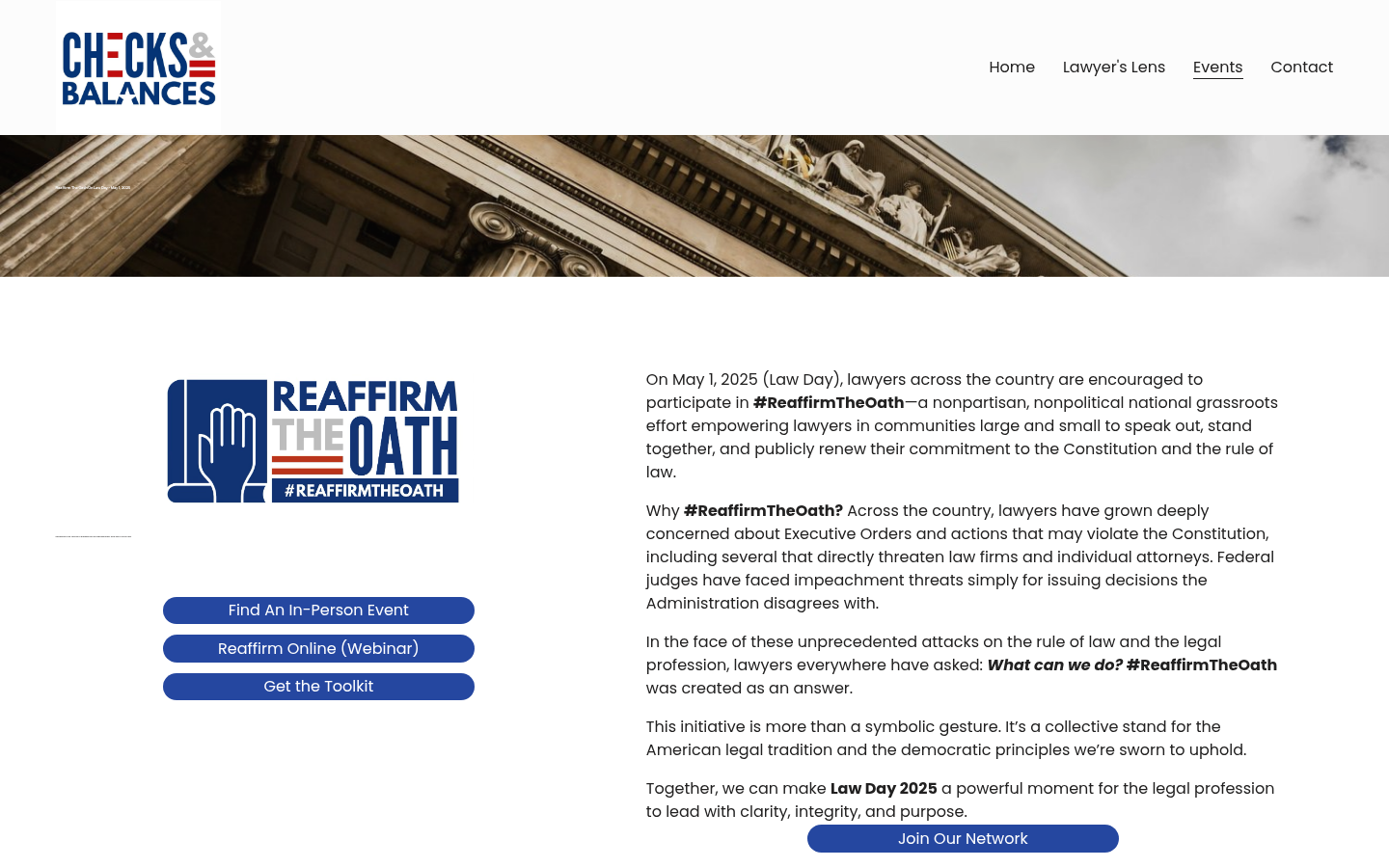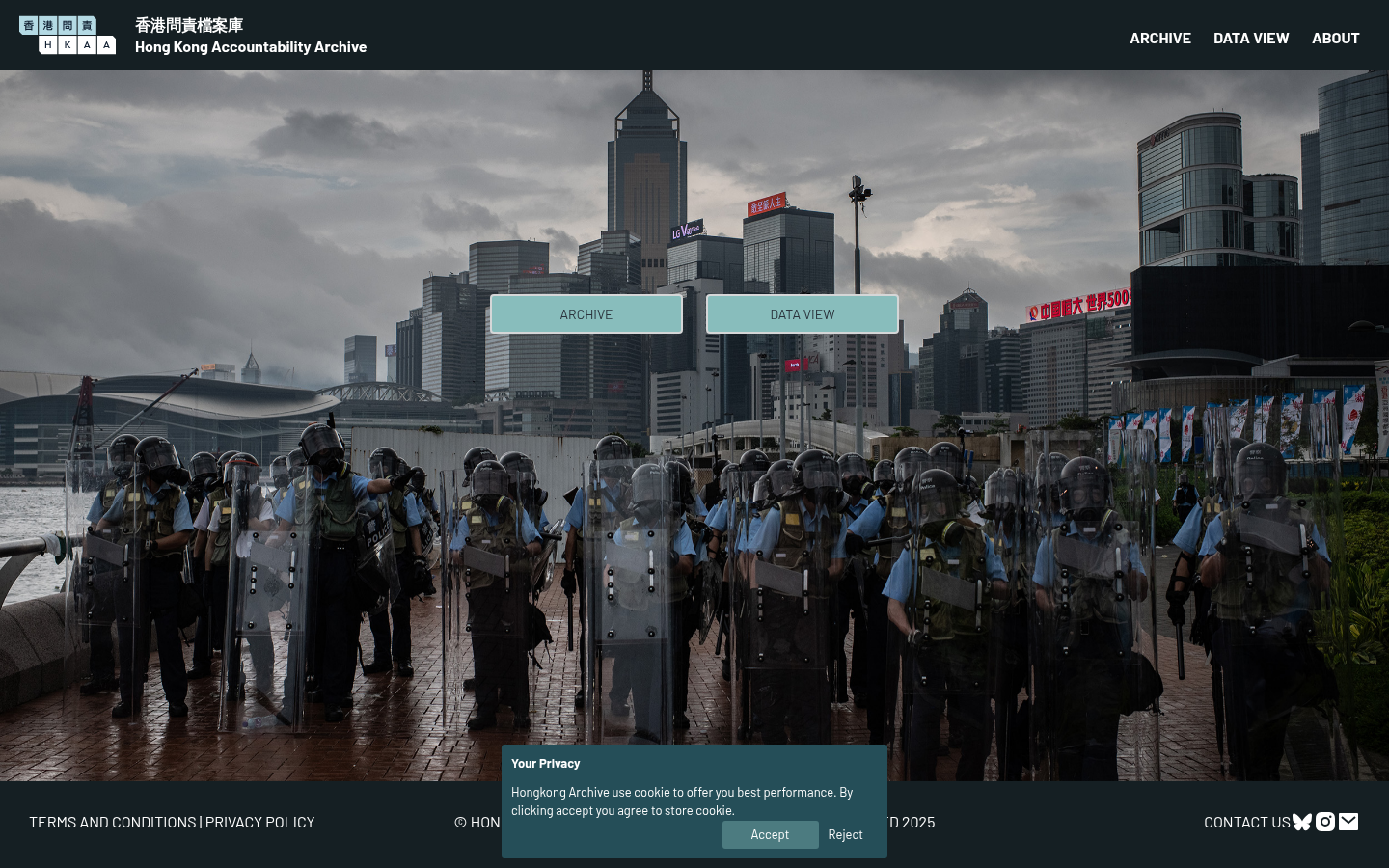Categories
311 Systems
Absentee and proxy voting
Academia
Academic programs
Accelerators
Access social benefits
Access to laws
Acquiring citizenship (naturalization)
Activism aggregators
Adjacent Fields
Advertising
Advocacy tech
Agentic AI
AI Auditing
AI Constituent Service
Algorithmic transparency
Alignment
Alliances
Applied Learning
Archives
Artificial Intelligence
Artistic interventions
Assistive and Accessible Tech
Audience development
Audio processing
Automated Decision-making Systems (ADS)
Automated Vehicles
Awards and prizes
Ballot information
Behavioral economics programs
Benchmarks
Big listening
Biometric AI
Biometrics
Blockchain
Board games
Books
Border surveillance
Bots
Boycott or buycott
Brand organizing
Budget explorers
Build something
Building in the private sector
Building inside government
Bureaucracy tech
Cameras
Campaign messaging
Campaign organizations
Campaign tools
Canvassing & Doorknocking
Carbon calculators
Case management
Celebrating public service and public servants
Certifications
Challenges
Chat and messaging
Check-in tools
Child safety
Circumvention tech
Citizen Engagement
Citizen science
Civic and social impact companies
Civic apps outfits
Civic crowdfunding platforms
Civic data
Civic data APIs
Civic features
Civic fiction
Civic forums
Civic hackathons
Civic hacking meetups
Civic imagination
Civic literacy
Civic maps
Civic teams at tech companies
Civic tech catalogs
Civic tech community surveys
Civic tech gifts
Civic tech legislation and policy
Civic tech unions
Civics education
Civil society research outfits
Co-design
Collect supporters' stories
Collective intelligence
Communicating with the government
Communicating with the people
Community wifi
Community-building resources
Competitions
Computer-assisted gerrymandering
Conferences
Connectivity
Constitutions
Consumer watchdogging
Content provenance
Courses
COVID
COVID Data Projects
COVID Engagement Projects
COVID Government Projects
COVID Media Projects
COVID Organizing Projects
Creators and Influencers
CRM
Crowd counting
Crowdsourcing
Cybersecurity
DAO (Decentralized autonomous organization)
Dashboards
Data activism
Data donations
Data governance
Data integration
Data labeling
Data rights
Data schemas and standards
Data science for social good
Data visualization
Debate
Decentralization
Deep learning
Deepfakes
Defining the field
Degree programs
Deliberation
Democratic Innovations
Design
Digital fabrication
Digital Government Units (DGUs)
Digital literacy
Digital participation platforms
Digital peacebuilding
Digital Public Goods
Digital Public Infrastructure
Digital rights
Digital security and privacy
Digital standards
Digital transformation
Digital twins
Diplomacy
Direct action
Direct aid
Disaster response and humanitarian tech
Distributed campaigns
Diversity & Inclusion
Drones
E-voting and I-voting
Economic development
Effective altruism
Election administration
Election observation
Election oversight
Email campaign tools
Emergency services
Emerging tech
Emerging Tech report (2020)
Emerging Tech Report Conferences
Emerging Tech Report Fellowships
Emerging Tech report orgs
Emerging Tech Report Projects
Emerging Tech Report Tools
Engagement journalism
Engagement tech
Environmental data
Ethical hackers
Ethical tech and responsible tech
Evaluate impact
Evidence-driven campaigning
Expert networks
Externalities of tech
Facial recognition tech
Factchecking
Fairness, Accountability, and Transparency (FAT)
Fellowships
Fieldwide resources
Fight cybercrime
Fight disinformation
Filter bubble poppers
Find a job or hire someone
Find your polling place
Find your representatives
Fintech for good
Forms
Foundation initiatives
Foundational layers
Freedom of Information
Funders & donors
Fundraising tools
Games and gamification
General purpose open source tools
Generative AI
Get funding
Getting to the polls
Glossaries
Governance of AI
Government AI strategies
Government Interoperability
Government transparency
Govtech
Govtech vendors
Grant management
Graveyard
Group communication tools
Group decision making
Hardware
Help more people run for office
Help out
High-tech COVID Interventions
Hiring tools
Holidays
Hotlines
Hubs
Hybrid / Offline
Hyperlocal news and citizen media
Ideation
Identity
In-person meetings
Inactive Projects Archive
Incubators
Indicators
Infographics
Information & Communication Tech for Development (ICT4D)
Innovation capacity
Innovation teams and labs
Interactive Voice Response (IVR)
Internal budgeting tools
Internal communication and coordination
Internal government tech capacity
Internet governance
Investigative journalism tech
Investors
Issue reporting
Job board software
Job boards
Job-matching
Journalism
Journals
Judicial opinions
Justice tech
Kiosks
Knowledgebase platforms
Labor platforms
Land records
Learn about civic tech
Legal tech
Legislation trackers
Licensing
Liquid democracy
Listening
Listservs, forums, and Slacks
Litigation trackers
Lobbying
Local news
Location
Machine learning
Machine learning analytics
Machine vision
Mainstream media coverage
Make a plan to vote
Make sure votes are counted
Manage natural resources
Manage volunteers
Manifestos
Mapping
Mapping platforms
Mapping tools
Marketplaces and clearinghouses
Mastodon
Matching views to votes
Maturity Assessment
Media
Media and social media analysis
Media literacy
Media monitoring
Meet the others
Meeting tech
Merchandise
Messaging app analysis
Monitoring services
More
Mutual aid
Narrative tech
Narrative tech organizing
Natural Language Processing
Needs assessment
Neighborhood forums
Net neutrality
Network visualizations
News and blogs
News to action
Newsletter tech
Newsletters
Newsroom partnership networks
NFTs
No-code
Nonprofit newsrooms
Nonprofit tech
Official campaign apps
Official Digital Identity Systems
Online courses
Online forums
Open asks
Open civic data
Open data publishing platforms
Open data publishing portals
Open data success stories
Open government data
Open innovation
Open internet
Open knowledge
Open philanthropy
Open science
Open source
Open source AI
Open source developer networks
Open source networks
Open Source Program Offices (OSPO)
Open source supply chain
Open-source intelligence (OSINT)
Opinion matching
Organizational policies on AI
Organize campaigns
Organize events
Parliamentary and congressional monitoring
Parliamentary and Legislative Tech
Participation consultants
Participatory aid
Participatory budgeting
Participatory budgeting programs
Participatory budgeting tools
Participatory democracy
Participatory memorials
Partner networks and coalitions
Payments
Peaceful transition of power
Peer networks
Peer to peer email
Peer to peer SMS
Peer-reviewed research
Permitting
Petitions
Phd Program
Phone banking tools
Platform coops
Playbooks and design principles
Podcasts
Polarization
Policy
Policy explainers
Policy simulators
Political parties
Predecessors
Predictive AI
Privacy-preserving user analytics
Pro bono and volunteer
Procurement
Procurement oversight
Professional associations
Promise trackers
Protest movements
Public Interest Tech
Public media
Public Private Partnerships
Public project trackers
Public records
Public Relations and amplification
Public sector innovation labs
Public sentiment tools
Quadratic voting
Radio
Ranked Choice Voting
Reading lists
Recruitment campaigns
Red teaming
Registers of government AI
Regulation
Relational organizing
Remote government
Report cards and audits
Reports
Research and policy centers
Research tools
Resettlement
Resource matching and sharing
RFP monitoring services
Robotics
Roundtables
Rules-based solutions
Satellites
Send food to poll lines
SEO for AI
Service alerts
Service delivery
Shows and films
Slacks, Discords, Teams
Smart Cities and sensors
Smartphones
SMS tools
Social and financial connections
Social impact design firms
Social media
Social networks
Socialize online
Soft robotics
Solidarity networks
Solutions journalism
Sortition & Citizen Assemblies
Special coverage
Specific campaigns
Specific digital participation instances
Speech recognition
State and regional government technology
Story tech
Story-based campaigns
Support civic projects with tech
Supporting public sector from outside government
Surveys & polling
Tactical voting
Targeting
Taxonomies
Taxpayer receipt
Tech for Bad Hall of Shame
Tech for public challenges
Tech or Digital Policy
Tech roadmaps
Tech talent
Tech translators and intermediaries
Tech unions
Testbeds and Sandboxes
The craft of organizing
The People
The Tech
Threat reporting
Timelines
Toolkits
Tools for Funders
Trade groups
Translation and linguistic representation
Translation tools, platforms, and communities
Trial monitoring
Trust & Safety
Trustmarks
Unions
Upskilling
Urban planning
User experience
User research
User research groups
Verified government accounts
Virtual and Augmented Reality (VR, AR, MR)
Visual Design
Vote by Mail
Voter assistance tech
Voter outreach
Voter registration
Voting and elections
VPN
Walking tours
Watchdogging and transparency
Watchdogging philanthropy
Watchdogging the media
Web hosting
Website builder
Whistleblowing
Work the polls
Working groups
Workshops
Tags
2023 Webby Awards
2024 elections
2024 Webby Awards
Access to Information Community of Practice
Adobe
Affordable and clean energy
agriculture
AIDS
air quality
Airbnb
Alaveteli
All Our Ideas
Amazon
Android
animals
Anthropic
anti-harassment
anti-trafficking
APIs
Apple
apps
Arctic
Argentina (federal government)
arms tracking
Asian and Pacific Islander
Association Civic Tech Europe
banking
bias
biodiversity
biome
blind
Bluesky
books
Brazil (federal government)
Brexit
buildings
campaigns
case studies
celebrities
census
ChatGPT
city
civic features
Civic tech communities and platforms
Claude
Clean water and sanitation
Climate action
coaching
commercial
Community
comparative
Consul
coop
coral
corruption
courses
COVID-19
crime
criminal justice
crisis
CTFG partners
culture
Current event
curricula
cyberwar
cycling
Deaf
debt
Decade-Plus Club
Decent work and economic growth
Decidim
decolonization
democracy
desktop apps
development
diabetes
diaspora
disasters
Discord
DNA
domestic violence
domestic work
Drupal
earthquakes
electricity
employee organizing
environmental justice
European Union
experiments
extensions
extremism
Facebook
films
fintech
fires
floods
food
forests
Format
framework
France (national government)
fraud detection
free speech
g0v
Gender Equality
Gender-Based Violence (GBV)
Germany (federal government)
gerrymandering
gig workers
Github
Global South Alliance
glossary
Good health and well-being
Google
Google Cloud AI
Govtech 100
Grok
guerilla
guides
gun safety
handbooks
harassment
hate speech
health
heat
history
HIV prevention and care
homelessness
Hong Kong protests
housing
human rights
humanitarian
hurricanes
IBM
IBM Watsonx
illicit goods
immigration
indigenous
Industry, innovation, and infrastructure
informal settlements
Instagram
International Telecommunication Union (ITU)
Israel Palestine
Issue
labor
land
landlord
landmine clearance
Latinx
lead replacement
learning difficulties
LGBTQI
libraries
Life below water
Life on land
LINE
LinkedIn
lists
literacy
local
malaria
manifestos
masks
mass transit
Mastodon
maternal health
Matrix
mental health
Meta
methane
methodology
Microsoft
Microsoft Azure AI
migration
Minecraft
mining
missing people
mobility
MOOCs
museums
neighborhoods
newsletters
Newspeak House
No poverty
noise
Occupy
Online Gender-Based Violence (OGBV)
OpenStreetMap
opioids
Other
parks
Parliamentary Monitoring Organizations Community of Practice
partisan
Partnerships for the Goals
peace
Peace, justice, and strong institutions
People Powered
permits
Perplexity
Pinterest
place-based
planning
Platform
podcasts
police violence
policing
Polis
Political unit
preventing election violence
print resources
private data public good
Project 2025
Prototype Fund
public space
Quality education
racial equity
radiation
rail
Rarimo
re-entry
real estate
recidivism
recycling
Reddit
Reduced inequalities
refugees
religion
reports
research
resilience
resources
Responsible consumption and production
reuse
right to repair
rivers
road safety
Robin Hood Foundation
rural
Salesforce
seniors
Sensemaker
Slack
Snap
social isolation
soil
speeding
Spotify
state
STEM
Stop AI theft
streetscape
Stripe
students
suicide prevention
supply chain
surveillance
sustainability
Sustainable cities and communities
Sustainable Development Goals
tariffs
taxes
teachers & educators
Telegram
templates
TensorFlow
The Netherlands (national government)
third party
TikTok
toolkits
towns
trainings
trans rights
trees
Uber
Ukraine
United Kingdom (government)
United Nations
United Nations Development Programme
United States (federal government)
universities
urban planning
US Election 2020
US Election 2024
vaccines
videos
Vision Zero
waste
Waze
web app
Webflow
WeChat (Weixin)
WhatsApp
white collar crime
widgets
Wikipedia
wikis
women
women's health
Wordpress
workbook
workshops
X (Twitter)
Your Priorities
youth
YouTube
Zero hunger
Project Type
Tool or platform
Space
Resource
Publication
Project
Program
Person
Organization
Network
Method
Media
Legislation
Game
Feature
Event
Document
Database
Course
Campaign
Other
Organization Type
Non-profit / charity / foundation
Multilateral institution
Media organization
Grassroots / Indie project
Government / public sector
For-profit business / social enterprise / B Corp
Advocacy organization
Academic / research organization
Other
Countries
Afghanistan (Afġānistān / افغانستان)
Africa
Åland Islands
Albania (Shqipëria)
Algeria (Dzayer)
American Samoa
Andorra
Angola (Ngola)
Anguilla
Antarctica
Antigua and Barbuda
Argentina
Armenia (Hayastán)
Aruba
Ascension and Tristan da Cunha
Asia
Australia
Austria (Österreich)
Azerbaijan (Azərbaycan)
Bahamas (the)
Bahrain (Al-Baḥrayn / البحرين)
Bangladesh (Bānglādesh / বাংলাদেশ)
Barbados
Belarus (Bielaruś / Беларусь / Belarus / Беларусь)
Belgium (België / Belgique / Belgien)
Belize
Benin (Bénin)
Bermuda
Bhutan (Druk Yul / འབྲུག་ཡུལ)
Bolivia (Buliwya / Wuliwya / Volívia)
Bonaire, Sint Eustatius and Saba
Bosnia and Herzegovina (Bosna i Hercegovina / Босна и Херцеговина)
Botswana
Bouvet Island
Brazil (Brasil)
British Indian Ocean Territory (the)
Brunei Darussalam (Negara Brunei Darussalam)
Bulgaria
Burkina Faso
Burundi
Cambodia (Kampuchea)
Cameroon (Cameroon, Cameroun)
Canada
Cape Verde (Cabo Verde)
Cayman Islands (the)
Central African Republic (the)
Chad (Tchad)
Chile
China (Zhong Guo)
Christmas Island
Cocos (Keeling) Islands (the)
Colombia
Comoros (Komori)
Congo (the Democratic Republic of the) (République Démocratique du Congo)
Cook Islands (the)
Costa Rica
Côte d'Ivoire
Croatia (Hrvatska)
Cuba
Curaçao
Cyprus (Kibris, Kypros)
Czech Republic (Ceska Republika)
Denmark (Danmark)
Djibouti (Jabuuti, Gabuuti)
Dominica
Dominican Republic (República Dominicana)
Ecuador
Egypt (Misr)
El Salvador
Equatorial Guinea (Guinea Ecuatorial)
Eritrea (Hagärä Ertra, Tigrinya)
Estonia (Eesti Vabariik)
Eswatini
Ethiopia (Ityop'iya)
Europe
Falkland Islands (the) (Malvinas)
Faroe Islands (the)
Fiji (Matanitu ko Viti)
Finland (Suomi)
France
French Guiana
French Polynesia
French Southern Territories (the)
Gabon
Gambia (the)
Georgia (Sakartvelo)
Germany (Deutschland)
Ghana
Gibraltar
Greece (Ellas, Ellada)
Greenland
Grenada
Guadeloupe
Guam
Guatemala
Guernsey
Guinea (Guinée)
Guinea-Bissau (Guiné-Bissau)
Guyana
Haiti
Heard Island and McDonald Islands
Holy See (the)
Honduras
Hong Kong
Hungary (Magyarország)
Iceland (Ísland)
India (Bhārat)
Indonesia
Iran (Islamic Republic of) (Īrān)
Iraq (al-ʿIrāq)
Ireland (Éire)
Isle of Man
Israel (Jisra'el)
Italy (Italia)
Jamaica
Japan (Nihon or Nippon)
Jersey
Jordan (al-Urdunn)
Kazakhstan (Qazaqstan)
Kenya
Kiribati (Ribaberiki Kiribati)
Korea (the Democratic People's Republic of)
Korea (the Republic of)
Kosovo (Kosova)
Kuwait (Al Kuwayt)
Kyrgyzstan
Lao People's Democratic Republic (the)
Latvia (Latvija)
Lebanon (Lubnan)
Lesotho
Liberia
Libya (Libiyah)
Liechtenstein
Lithuania (Lietuva)
Luxembourg (Luxembourg, Letzebuerg)
Macao
Madagascar (Madagasikara)
Malawi (Malaŵi)
Malaysia
Maldives (Dhivehi Raajje)
Mali
Malta
Marshall Islands (Aolepān Aorōkin Ṃajeḷ)
Martinique
Mauritania (Muritaniyah)
Mauritius
Mayotte
Mexico (Estados Unidos Mexicanos)
Micronesia (Federated States of)
Moldova (the Republic of)
Monaco
Mongolia (Mongol Uls)
Montenegro (Crna Gora)
Montserrat
Morocco (Al Maghrib)
Mozambique (Mocambique)
Myanmar (Myăma)
Namibia
Nauru
Nepal
Netherlands (Nederland or Holland)
New Caledonia
New Zealand
Nicaragua
Niger (the)
Nigeria
Niue
Norfolk Island
North America
North Macedonia (Severna Makedonija)
Northern Mariana Islands (the)
Norway (Norge, Noreg)
Oceania
Oman (Saltanat Uman)
Pakistan
Palau (Belau)
Palestine, State of
Panama
Papua New Guinea (Papua Niu Gini)
Paraguay
Peru
Philippines (the)
Pitcairn
Poland (Polska)
Portugal
Puerto Rico
Qatar (Dawlat Qatar)
Réunion
Romania
Russian Federation (the)
Rwanda
Saint Barthélemy
Saint Helena
Saint Helena, Ascension and Tristan da Cunha
Saint Kitts and Nevis
Saint Lucia
Saint Martin (French part)
Saint Pierre and Miquelon
Saint Vincent and the Grenadines
Samoa
San Marino
Sao Tome and Principe (São Tomé e Príncipe)
Saudi Arabia (Al Arabiyah as Suudiyah)
Scotland
Senegal
Serbia (Srbija)
Seychelles
Sierra Leone
Singapore
Sint Eustatius and Saba
Sint Maarten (Dutch part)
Slovak Republic (Slovensko)
Slovenia (Slovenija)
Solomon Islands
Somalia (Soomaaliya)
South Africa (South Africa, Afrika-Borwa, Suid-Afrika)
South America
South Georgia and the South Sandwich Islands
South Korea (Republic of) (Hanguk or Namhan)
South Sudan
Spain (España)
Sri Lanka
Sudan (the)
Suriname
Svalbard and Jan Mayen
Sweden (Sverige)
Switzerland (Schweiz, Suisse, Svizzera)
Syrian Arab Republic (Suriyah)
Taiwan (T'ai-wan)
Tajikistan (Tojikiston)
Tanzania, United Republic of (Jamhuri ya Muungano wa Tanzania)
Thailand (Prathet Thai)
The Caribbean
Timor-Leste (Timór Loro Sa’e)
Togo (Republique Togolaise)
Tokelau
Tonga
Trinidad and Tobago
Tunisia (Tunis)
Turkey (Turkiye)
Turkmenistan
Turks and Caicos Islands (the)
Tuvalu
Uganda
Ukraine (Ukrayina)
United Arab Emirates (Al Imarat al Arabiyah al Muttahidah)
United Kingdom of Great Britain and Northern Ireland (the)
United States Minor Outlying Islands (the)
United States of America (the)
Uruguay (Republica Oriental del Uruguay)
Uzbekistan (Uzbekiston Respublikasi)
Vanuatu
Venezuela (Bolivarian Republic of)
Vietnam (Việt Nam)
Virgin Islands (British)
Virgin Islands (U.S.)
Wales
Wallis and Futuna
West Bank (al-Ḍiffah al-Gharbīyah)
Western Sahara (Aṣ-Ṣaḥrā’ al-Gharbīyah)
Yemen (Al Yaman)
Zambia
Zimbabwe
Open Source
Yes
No
Partially















































